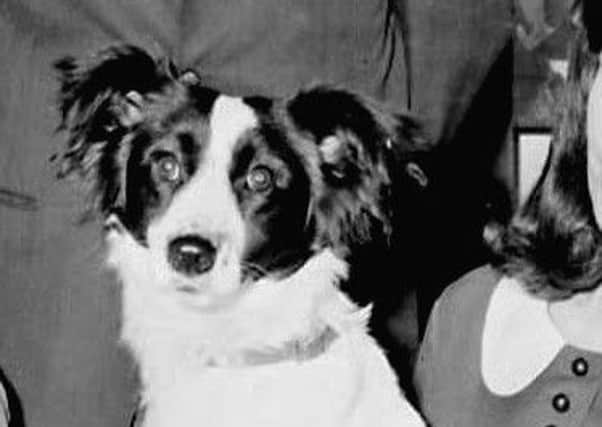The collie that helped a grateful nation out of a pickle


IT’S one of those moments seared into the memory of England fans old enough to remember.
There’s Geoff Hurst’s famous hat-trick, Nobby Stiles dancing with joy on the turf, Kenneth Wolstenholme’s immortal ad-lib and the outbreak of national pride which, some say, helped Harold Wilson stay in power.
Advertisement
Hide AdAdvertisement
Hide AdBut England’s World Cup victory over West Germany on that sweltering summer’s day at Wembley in 1966 could have very easily been overshadowed by a national embarrassment had it not been for the detective work of a dog called Pickles.
This week, 50 years ago, the Jules Rimet Trophy went missing in London sparking a huge search. It’s a story laced with humour, mystery and incompetence.
The small, solid gold statuette had been handed over to the hosts in January – as the rules stipulated – and was kept under lock and key in the Football Association’s offices at Lancaster Gate.
However, the FA in its wisdom agreed to a request from a postage stamp company that wanted the trophy to be part of an exhibition at Westminster it had organised. The FA insisted there should be round-the-clock surveillance of the hall where the exhibition was being held.
Advertisement
Hide AdAdvertisement
Hide AdThe Cup had only just gone on display when, on March 20, one of the guards noticed that the cabinet case holding the famous statuette, which was insured for £30,000, had been forced open – the World Cup was gone.
News of the theft hit the headlines with The Yorkshire Post reporting that six security guards were on duty when the thief, ignoring stamps worth £3m, removed a padlock to open the back of the glass fronted case.
The main entrance to Westminster’s Central Hall had been open for a Methodist service and the newspaper questioned whether the culprit had posed as a churchgoer.
As well as causing several days of anxiety the Cup’s theft was also hugely embarrassing with many people, this newspaper included, asking how the trophy could have disappeared from right under the nose of Scotland Yard. Brazil said it was a sacrilege that would never have been committed in its own country where even its thieves loved football too much.
Advertisement
Hide AdAdvertisement
Hide AdReaction from around the world was equally scathing. The Yorkshire Post reported that the president of the Finnish Football Association was “damned angry” at the news and also quoted the secretary of the Royal Netherlands Football Federation who complained that his English colleague, Denis Follows, should have kept the trophy under his bed, like Italy’s Dr Ottorino Barassi did during the Second World War.
There was some scepticism, though, with one Argentinian footballing expert querying whether the whole saga was just a publicity stunt.
Detectives and forensic experts were put on a case that read like something out of a Sherlock Holmes story. But despite their best efforts the whereabouts of the trophy still remained a mystery a week later.
But cometh the hour, cometh man’s best friend. On March 27, David Corbett was walking his black and white Collie Pickles in Beulah Hill, South London, when the dog started sniffing a parcel, wrapped in an old newspaper and tied with string, under the hedge of Corbett’s house. Pickles had found the missing trophy.
Advertisement
Hide AdAdvertisement
Hide AdHe became a canine hero, appearing on TV and in films while Corbett, once he had been cleared of suspicion of any involvement in the robbery, was a guest at England’s celebration dinner after they won the World Cup.
But it wasn’t the end of the story. The Jules Rimet cup was stolen again in 1983 – in Rio de Janeiro – only this time Pickles wasn’t on hand to come to the rescue, and the trophy has never been recovered.